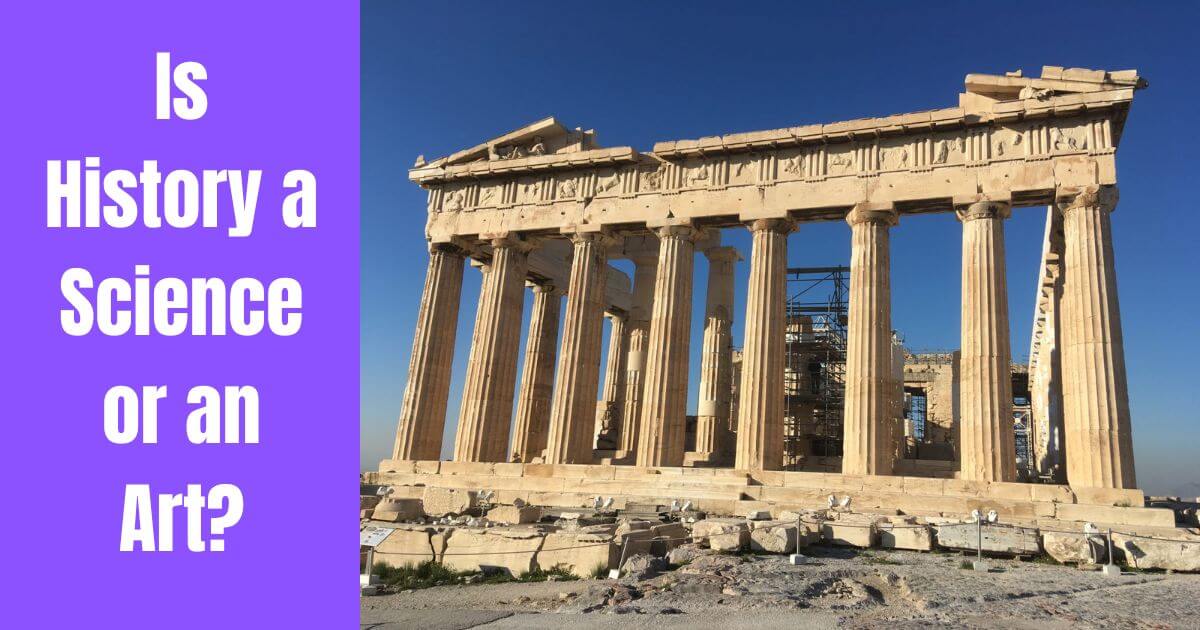History is a fascinating and complex way that has been studied for centuries. It is a subject that is both a science and an art. This is why it is such a unique field of study. The reasons why History is both a science and an art. It is so important to understand the intricacies of this fascinating discipline.
Science and art are two fields of study that are often viewed as separate and distinct from each other. Science is associated with facts, figures, and empirical evidence, while art is associated with creativity, expression, and aesthetics. History is a discipline that blurs the lines between science and art, and this is why it is so interesting.
When we study History, we try to understand what happened in the past. This involves gathering information, observe data, and interpreting evidence. History is a science because it requires the use of scientific methods and techniques to uncover the truth. Historians use a range of sources, including primary sources like letters, diaries, and official records, as well as secondary sources like textbooks, academic articles, and historical analyses. Historians are able to build a picture of what happened in the past, and they are able to make informed conclusions based on the evidence.
The scientific aspect of History
The scientific aspect of History involves the use of empirical evidence and critical analysis to understand and interpret past events. Historians use a variety of sources, including primary sources such as letters, diaries, and eyewitness accounts, as well as secondary sources such as books and articles written by other historians.
To ensure the accuracy and reliability of their work, historians employ a range of methodologies and techniques, including historical research, analysis, and interpretation. This includes examining and evaluating the quality and reliability of sources, as well as assessing the context and significance of events.
In addition, historians often work within a theoretical framework that helps them to organize and interpret their findings. This might include use concepts from social sciences such as sociology, anthropology, and political science. It improves understand the social, cultural, and political dynamics of the past.
The artistic aspect of History
The artistic aspect of History concerns with the role that art and culture have played in shaping historical events and human experience. Artistic expressions, such as music, literature, visual arts, theater, and film, seem valuable sources of information about the beliefs, values, and social norms of a particular time and place.
Historians who study the artistic aspect of History analyze artworks as cultural products that reflect and shape the historical context in which they produce. They examine how art reflects social, political, and economic conditions and how it can influence and shape society.
Art can also be used as a means of communicating and interpreting historical events and cultural phenomena. For example, artworks such as paintings, sculptures, and photographs can provide visual representations of historical events or social movements, while literature and music can give voice to the experiences and perspectives of people who lived in the past.
Engaging Facts
However, History is also an art because it involves interpretation, storytelling, and creativity. Historians do not just gather and analyze facts. They also must make sense of those facts and present a way to engage and be meaningful. This requires a level of creativity and artistry that is often associated with the arts. Historians have to be able to weave together a narrative that captures the essence of what happened in the past. Get to know about Yamato e painting.
Social Science
In addition to being a science and an art, History is also a social science. This is because History is concerned with understanding human behavior and the events that shape our world. By studying History, we are able to gain insights into the past, and we are able to use those insights to better understand the present. History is a vital tool for understanding how societies and cultures have evolved over time, and it is essential for understanding the world around them.
Avoid Mistakes
One of the reasons History is so important is that it helps us to avoid repeating the mistakes. By studying historical events, we can learn from the successes and failures that came before us, and we are able to apply those lessons to the present. History is a powerful tool for understanding the consequences of our actions.
Identity Sense
Another reason History is so important is that it provides a sense of identity and belonging. History is a vital part of our cultural heritage. Without History, we would be adrift in a sea of uncertainty, without a sense of purpose or direction.
Conclusion
History is a discipline that is both a science and an art. It is essential to understand the world around them. We can gain insights into the past, avoid repeating the mistakes of the past, and build a sense of identity and belonging. History is a fascinating and complex field of study. It requires a unique combination of scientific rigor and artistic creativity. Whether you are a student, a researcher, or just someone who is interested in the past, History is a subject that is well worth exploring.



